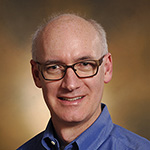David W. Piston, PhD, has been named the new head of the Department of Cell Biology and Physiology at Washington University School of Medicine in St. Louis.

The appointment, which will begin Jan. 1, 2015, was announced by Larry J. Shapiro, MD, executive vice chancellor for medical affairs and dean of the School of Medicine.
“David originally trained as a physicist, and he’s used that experience to open remarkable new windows into basic and clinical biology, both for his own research and for other scientists,” Shapiro said. “His cross-disciplinary roots and established record of innovation and collaboration make him an ideal leader for the Department of Cell Biology and Physiology.”
Piston, who comes from Vanderbilt University, is renowned for his groundbreaking work with fluorescent imaging techniques, which use lasers, glowing molecular tags and other tools to measure and monitor biological processes in cell cultures and in living organisms. Much of his research focuses on the complex relationship among diabetes, blood glucose and the secretion of pancreatic hormones.
He recently began the study of the production of glucagon, a pancreatic hormone that raises blood sugar levels. Severe diabetes is treated with insulin, which lowers blood sugar levels. Piston believes a better understanding of how the antagonistic relationship between glucagon and insulin works will help scientists develop improved treatments for diabetes.
Piston said he plans to encourage cross-disciplinary research in the cell biology and physiology department.
“I hope to leverage expertise from engineering, mathematics, physics and chemistry to address important biomedical questions from a cell biology and physiology perspective,” he said.
Piston earned his PhD in physics at the University of Illinois in 1989 and completed a postdoctoral fellowship in biophysics at Cornell University.
He currently is the Louise B. McGavock Chair and professor of the Department of Molecular Physiology and Biophysics at Vanderbilt University. He also is a professor of physics and of chemical and biomedical engineering and director of the Biophotonics Institute at Vanderbilt.
Piston is a fellow of the American Physical Society. His past honors have included the Woodrow W. Patterson Award and the Stanley Cohen Award, both from Vanderbilt University; an Arnold and Mabel Beckman Foundation Young Investigator Award; and a Nikon Fellowship at Woods Hole Laboratory.
Washington University School of Medicine’s 2,100 employed and volunteer faculty physicians also are the medical staff of Barnes-Jewish and St. Louis Children’s hospitals. The School of Medicine is one of the leading medical research, teaching and patient-care institutions in the nation, currently ranked sixth in the nation by U.S. News & World Report. Through its affiliations with Barnes-Jewish and St. Louis Children’s hospitals, the School of Medicine is linked to BJC HealthCare.